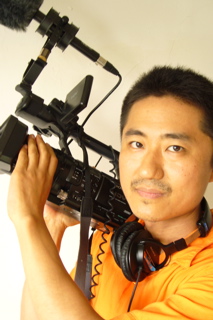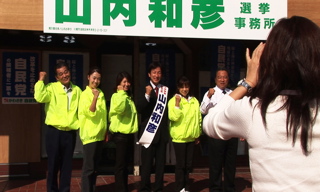
想田和弘(そうだ・かずひろ)は栃木県足利市に生まれた。1993年からニューヨークに在住、フィクション映画やドキュメンタリーを制作し現在に至る。97年、学生時代に監督した短編映画「ザ・フリッカー」がヴェネチア国際映画祭銀獅子賞にノミネートされる。96年には長編「フリージング・サンライト」がサン・パウロ国際映画祭「新進映画作家賞」にノミネート。95年の短編「花と女」はカナダ国際映画祭で特別賞を受賞した。これまでにNHKのドキュメンタリー番組を合計40本以上演出、中でも養子縁組み問題を扱った「母のいない風景」は01年、テリー賞を受賞した。東京大学文学部宗教学科卒。スクール・オブ・ビジュアルアーツ映画学科卒(ニューヨーク)。ダライ・ラマ法王14世の大ファンで、94年にはインド・ダラムサラで雑誌用のインタビューを行った。「観察映画シリーズ」第1弾で、長編ドキュメンタリー第1作目の「選挙」は、2007年のベルリン映画祭フォーラム部門への招待が決まっている。
KAZUHIRO SODA was born and raised in Japan and has lived in New York since 1993. He has directed numerous fiction films and TV documentaries, but CAMPAIGN (SENKYO) is his first feature documentary. While he was still a student, his short fiction film "The Flicker" (1997) competed for a Silver Lion Award at the Venice International Film Festival in Italy. "Freezing Sunlight" (1996) was nominated for a New Filmmaker's Award at the Sao Paulo International Film Festival in Brazil. "A Flower and a Woman" (1995) won a Special Commendation in the Canadian Annual International Film Festival. Among the many TV documentaries Soda has directed, "Landscape Without Mother" (NHK) won a Telly Award in 2001. He holds BFA in Filmmaking from the School of Visual Arts and BA in Religious Studies from Tokyo University. Soda is a big fan of The Dalai Lama and conducted an interview with him in 1994.


